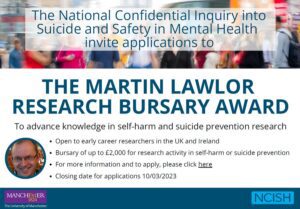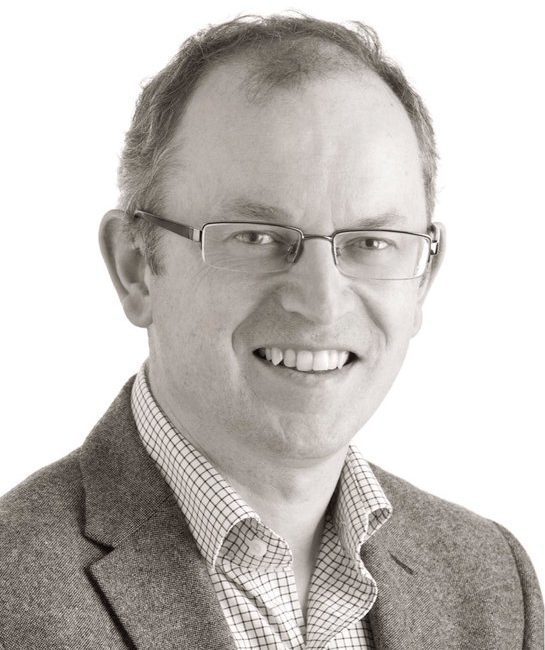State of Mind are remembering an outstanding mental health campaigner who died in a road traffic collision in 2018
Martin Lawlor, aged 49, was a father of three, who was originally from Tralee, County Kerry, and he was the director of the Centre for Recovery and Social Inclusion in Ireland, which is linked to University College Cork.
He was also the co-founder of State of Mind Ireland, alongside his sister Dr Susan Lawlor. State of Mind are thinking about Martin today and all the Lawlor family

Manchester University launched a memorial bursary in 2023 to continue Martin’s legacy
State of Mind Ireland aims to improve the mental health, wellbeing and working life of sports players and sporting communities throughout Ireland. Dr Lawlor was the programme lead and the medical director of the initiative.
Dr Lawlor was a respected forensic psychiatrist who regularly commuted from his job in Cork to his family in Manchester.
The bursary winner Charlotte Williamson presented her research at an international conference as follows below –
Martin Lawlor Research Bursary Award – Post-Conference Attendance Report Charlotte Williamson
The European Psychiatric Association (EPA) Section in Epidemiology and Social Psychiatry hosted its
21st Congress in Lausanne, Switzerland from 11 – 14 September 2024. The biennial section conference
was dedicated to the latest research in psychiatric epidemiology and social psychiatry, with a strong
focus on connecting early, mid and senior researchers from Europe and beyond working in the field.
The congress was attended by over 300 international delegates including academic leaders in
psychiatric epidemiology and social psychiatry, proving an excellent opportunity to develop and grow
my research network.
Attending the congress and presenting both an oral presentation and a poster allowed me to
disseminate and discuss some important findings from my PhD research so far to the wider
international research community. This included presenting the findings from the qualitative
component of my PhD as part of a symposium on ‘The Biological, Psychological and Social
Consequences of War. An Update on the UK Military Psychiatric Epidemiology a Decade after the
Withdrawal from Afghanistan’. My oral presentation was entitled ‘“Man Up and Get on with It”: UK ex
serving personnel’s experiences of seeking help for self-harm, suicidal ideation and suicide attempts’.
In addition, I presented a poster as part of a series of posters relating to the topic of Suicide and Self
Harm. My poster presented the results from one of my quantitative studies entitled ‘Lifetime self
harm, suicidal ideation and suicide attempts among UK serving and ex-serving personnel: Rates and
Associated Factors’.
During the congress, I attended a range of presentations, symposia, workshops and networking events.
I found a series of presentations on Suicidal Thoughts and Behaviours particularly interesting as this
provided opportunity for learning and development within my research area but outside of the usual
context/population. Some examples of presentations within the series of talks included (1) results from
a two-year cohort study on young and middle-aged males in Australia exploring the transition from
suicidal ideation to suicide attempt, (2) findings from a qualitative study exploring the experiences of
suicide attempt survivors when sharing their stories of suicidality and overcoming a crisis through the
media and public talks, and (3) feasibility results of a study using artificial intelligence to predict
suicidality in youth seeking help from a German crisis text line. I also attended two of the workshops
dedicated to early career researchers. ‘Introduction to health data linkage – methods and challenges’
provided a useful introduction to a method in which I have little experience but hope to use in the
future, and ‘An ECR’s guide to real world impact’ provided useful tips and advice on how to ensure my
research has impact in ways I may not have considered previously.
Overall, attending and presenting at the EPA Section in Epidemiology and Social Psychiatry allowed me
to showcase my research, develop my research network and provided an opportunity which was
beneficial for enhancing my understanding of my research area and for my long-term professional
development. Martin’s legacy continues!!

